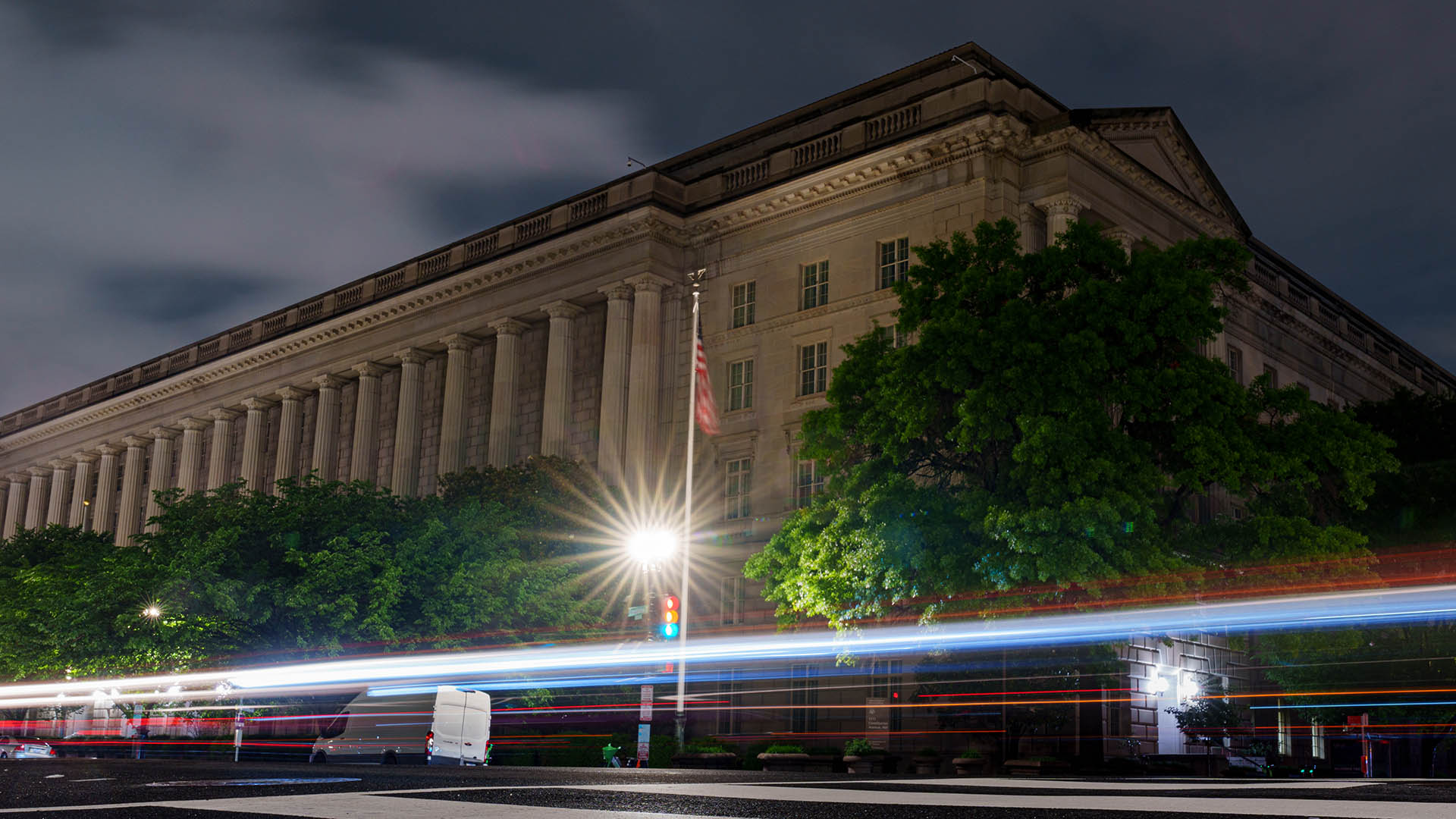TAX HAVENS
US court grants IRS request to probe clients of offshore finance giant
Trident Trust was at the center of ICIJ’s Pandora Papers investigation exposing the offshore holdings of some of the world’s wealthiest and most powerful people.

The U.S. Internal Revenue Service is conducting a wide-ranging investigation into possible tax violations by clients of a prominent offshore services provider that operates across many of the world’s notorious tax havens.
On Dec. 23, 2024, a federal judge approved the IRS’s request to demand records about U.S. taxpayers from a Manhattan-based affiliate of the Trident Trust Group as well as records from international banks related to the firm’s global activities. Similar IRS requests are pending in two other U.S. states, according to a press release from the U.S. Attorney’s Office for the Southern District of New York.
The tax agency said it had identified several Trident Trust clients who used its services to break U.S. tax laws and is now seeking information about the firm’s other clients.
“U.S. taxpayers and their facilitators who hide offshore income generating activities and assets from the U.S. government are on notice that the IRS continues to prioritize combatting offshore abusive activities,” IRS commissioner Danny Werfel said in the Justice Department announcement. “These records will assist the IRS and its partners in finding those taxpayers, ensuring their compliance with the U.S. tax laws and delivering on our mission of a fair tax system.”
The court order authorizes the IRS to serve a so-called “John Doe” summons on Nevis Services Limited, the Trident Trust affiliate in New York City, to obtain records related to its clients’ offshore holdings from 2014 through 2023. The IRS uses these summonses when seeking information about possible tax abuse by individuals whose identities are unknown.
Trident Trust, founded in the British Virgin Islands in the 1980s, is one of the largest players in the world of offshore finance, where wealthy clients set up opaque shell companies and trusts to shield assets from government authorities and the public eye. The firm was a major focus of the International Consortium of Investigative Journalists’ 2021 Pandora Papers investigation.
In response to questions from ICIJ, Trident Trust said it is aware of the IRS actions and that it alerts the authorities whenever its compliance processes raise concerns. “Each of our trust and corporate services businesses is regulated in the jurisdiction in which it operates and is fully committed to compliance with all applicable regulations,” the firm said in a statement. “All clients are assessed via a thorough onboarding process.”
The Pandora Papers investigation was based on more than 11.9 million leaked records from 14 offshore services providers, including millions of documents from Trident Trust. ICIJ reported that Trident Trust’s customers included Ecuador’s former president Guillermo Lasso, Chinese e-commerce magnate Jack Ma, and Israeli mining billionaire Dan Gertler. ICIJ’s reporting also examined Trident Trust’s connection to a network of shell companies associated with Russian politician and billionaire Suleiman Kerimov that were used to shuffle hundreds of millions of dollars around the world. The story detailed the activities of a former Kerimov associate, Alexander Studhalter. In an apparent effort to obscure ownership of a shell company that transferred more than $300 million to Kerimov-linked firms, Studhalter listed a tattoo artist in his Swiss town on Trident Trust paperwork as the company’s owner.
Several months after that story was published, the United States sanctioned Studhalter, noting that he had “allegedly laundered significant amounts of money on Kerimov’s behalf.” The U.S. had previously sanctioned Kerimov in relation to Russia’s occupation of Crimea. In June 2024, the U.S. lifted its sanctions on Studhalter.
Pandora Papers reporting also dug into Trident Trust’s activities in South Dakota, which has been identified as a new destination for ultrawealthy people around the world — including some with questionable sources of income — seeking financial secrecy.
The Justice Department’s recent announcement noted that, in addition to investigating Nevis Services’ clients, federal authorities are seeking approval to demand customer records from Trident Trust’s operations in the U.S. states of South Dakota and Georgia.
David Utzke, a former IRS agent who won approval in 2016 to issue a high-profile John Doe summons for the customers of cryptocurrency exchange Coinbase, said U.S. courts set a high bar for greenlighting these summonses. “You can’t use it for fishing,” Utzke said. “You have to lay out a preponderance of evidence that this will show a large portion of this customer population has done something in violation of the civil code.”
You can’t use it for fishing.
— former IRS agent David Utzke on John Doe summonses
In its request for the summonses, the IRS said it “has encountered numerous examples” of Trident Trust entities “helping U.S. taxpayers create foreign corporations and trusts, and open foreign bank accounts, all of which were concealed by their clients from the IRS.” The filing said that, in one instance, Trident Trust helped a U.S. taxpayer create entities that conducted a series of financial transfers resulting in assets being held in Swiss bank accounts that were not associated with his name and hidden for a time from U.S. authorities. The filing alleged several other instances of “tax noncompliance among U.S. taxpayers that was facilitated” by Trident Trust, which has offices in at least 28 jurisdictions outside the U.S.
The IRS said it has evidence suggesting additional Trident Trust customers “violated the internal revenue laws” and believes Nevis Services holds valuable records regarding these clients. The proposed summons on Nevis Services would seek swaths of information, including customer names, communications with Trident Trust’s many global affiliates, and records detailing transfers of assets to foreign entities.
The IRS is also seeking information from third parties, including courier services and banks, according to the filing. The filing stated that Trident Trust offers “mail-retention and forwarding services that are commonly utilized by U.S. persons seeking to avoid IRS detection of beneficial ownership and taxable income and assets.” The IRS received court approval to demand extensive shipment records relating to Trident Trust from FedEx, UPS and DHL that would reveal the names of the firm’s U.S. clients.
The court also granted the IRS’s request to demand banking transaction data related to Trident Trust’s operations from the U.S. offices of several major global banks, including HSBC, BNY Mellon, Citi and Deutsche Bank. The banks and courier services are not accused of wrongdoing. The banks may not have worked directly with Trident Trust but provided so-called correspondent banking services to foreign financial institutions that give them visibility into U.S. dollar transactions across the globe.
The IRS did not respond to a request to provide comment on the investigation.
Eulonda Lea, a former supervisory special agent in the IRS’s Criminal Investigation Division, said the deployment of such extensive John Doe summonses is not an everyday occurrence at the agency. “The sheer number of entities covered in the John Doe Summons says to me that this is a wide-ranging investigation,” Lea said. “It looks like a very significant action in terms of [the IRS] trying to prove what’s going on offshore.”



